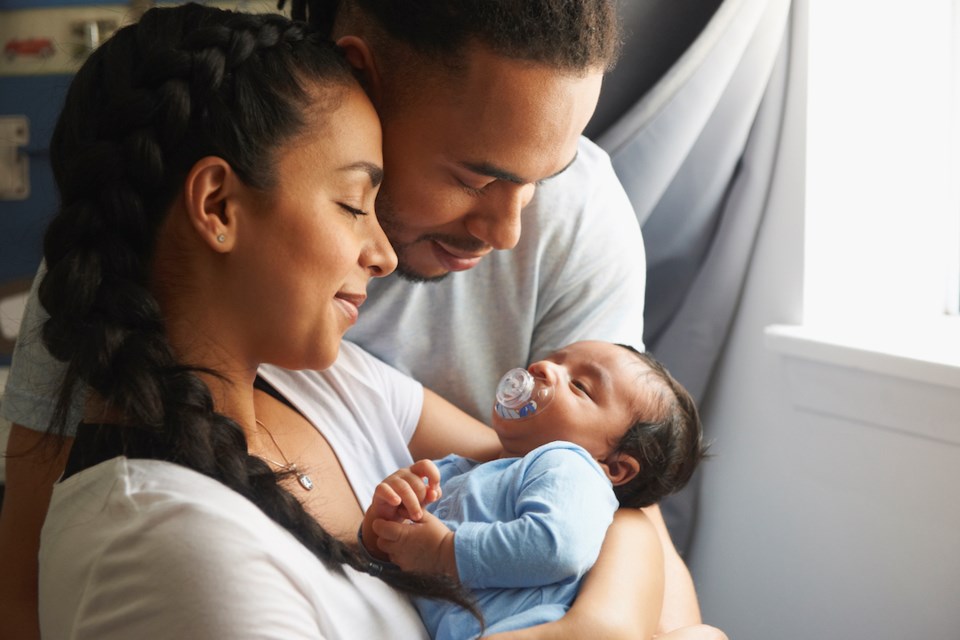Q: I hear of lots of soon-to-be parents or new parents on the Coast needing extra support but who don’t know where to get help. What is out there?
A: Thanks for your important question and I’m sure this resonates with many. The birth or adoption of a child is a profound life change that can go hand-in-hand with new or worsening mental health challenges. We know that the COVID-19 pandemic and subsequent physical distancing and isolation measures have resulted in an increase in levels of depression and anxiety for expectant and new parents.
Fortunately, there are many free resources available for local parents, or parents-to-be, who are experiencing mental health challenges. At the best of times, it can be hard to pick up the phone to get that help, and hopefully this summary of some of what is available here on the Coast can help people take the steps to connect to the supports they deserve.
Pregnant people and their partners can talk to their maternity care providers or primary health care providers, (midwife, doctor or nurse practitioner) about any concerns they might have. The care providers are able to assess, diagnose, and treat and/or refer people to access the care they need and want.
Public health nurses are available for support before or after the arrival of a baby. They can provide over the phone care, office visits, or home visits.
Public health nurses screen all mothers for depression and anxiety when they bring their infants in for two-month vaccinations or when families identify that this is an issue for them. Connect to a nurse by calling either the Sechelt Health Unit 604-885-5164 or Gibsons Health Unit 604-984-5070.
Members of shíshálh Nation who are new or soon-to-be parents can contact community member services (CMS) at 604-885-9404 to speak to the “Strengthening Families” staff or health department nurses.
Sunshine Coast Community Services offers a number of ongoing and sign-up programs where people can get support from trained coordinators and from their peers. “Bellies and Babies” and “Parent and Tot programs” are two drop-in programs. Additionally, the enhanced “Mamas Supporting Mamas program” is a six-week group where women can connect in a safe and non-judgemental space and be guided through facilitated conversations about the transformative journey into motherhood, including living with postnatal depression and/or anxiety. Shirley French is the program coordinator and can be reached for further information at 604-865-0158. Read more on their website at sccss.ca/programs/family-youth-childrens-services.
The Pacific Post Partum Support Society (PPPSS) offers phone or text or Zoom individual and group support for moms, dads, same-sex partners and their supporters. The PPPSS has a queer and trans parenting support group for people experiencing mental health challenges during pregnancy, after birth, or during your adoption or surrogacy journey. Information about their offerings can be found at postpartum.org or by calling/texting 604-255-7999. The toll-free number is 1-855-255-7999.
Vancouver Coastal Health runs free counselling services and parents seeking help can self-refer by calling 604-885-6101. You can also ask for a referral from a doctor.
If your family has extended health benefits, or you are able to pay, consider private counselling options for ongoing support. Extended health benefits may cover some or all of the costs of the therapy. The Sunshine Coast Fetch directory website is one place where you can search for private counselling providers: sc.fetchbc.ca.
If you need to speak with someone now, for free, either while you wait for other services to become available, or for ongoing support, consider using phone-in options like HealthLinkBC’s free mental health support line 24/7 at 310-6789 (no area code needed). For Indigenous folks, the KUU-US crisis line is available 24/7 at 1-800-588-8717.
Parents experiencing psychotic symptoms such as hallucinations or delusions, or thoughts about harming themselves, should call 911 or get help getting to the emergency department at Sechelt Hospital.
It takes courage to ask for help, and there are many people in our community who are here to provide a safe and non-judgemental space to help people overcome their challenges.
A big thank you to public health nurse Emily Doyle for her help researching and putting together this week’s column.
Angie Theilmann is an information and referral specialist at the Sunshine Coast Resource Centre, your community information hub. The Resource Centre is open Monday to Thursday 10 a.m. to 3:30 p.m. Appointments are recommended to be sure we are available to help you. Contact us: [email protected] or 604-885-4088.



